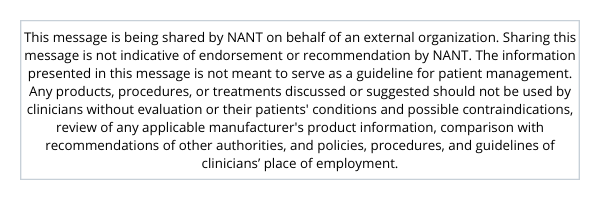Dr. Steven Barlow (co-inventor of the NTrainer System) routinely contends that “Non-Nutritive Sucking is About More Than Just Feeding.” While his rationales for the statement were true nearly two decades ago when he began researching preterm feeding development; there has been a plethora of research published since that time to further validate just how important NNS skills are for the developing fetus and neonate. Here is just a brief list:
- NNS supports gastric emptying (Zhao et al., 2004) and reduces feeding intolerance (Fazil et al., 2017).
- NNS promotes the maturity of gastrointestinal function and reduces the occurrence of gastrointestinal damage (Qiang, 2020).
- NNS increases levels of gastrin and somatostatin, which aid acid secretion, optimal digestion, absorption of nutrients and expulsion of waste products (Widström et al., 1988).
- NNS supports immediate pain regulation (Liang et al., 2018; Vu-Ngoc et al., 2020), and reduces pain reactivity (Riddell et la., 2015; Yilmaz, F. & Arikan, 2011).
- NNS reduces stress (Lan & Liaw, 2020).
- NNS regulates physiologic stability (Foster et al., 2016; Pinelli & Symington, 2005), especially if NNS is on an empty breast (Thomas & Matthew, 2019).
- NNS decreases heart rate and increases oxygen saturation when an infant is in distress (DeBernardo et al., 2019; Gao et al., 2018).
- NNS can predict later neurodevelopment for motor skills, balance, intelligence, and language (Wolthuis-Stigter et al 2017; Wolthuis-Stigter et al 2015).
With the continued emergence of research demonstrating the importance of NNS, not to mention the actual benefits it provides to oral feeding success, we had to stop and ask ourselves, “How can we further support improving NNS skills for more infants in need?” After working hand in hand with our clients along with guidance from the NANT community, one element of feedback was consistent: “If it were smaller, it would be easier to use and we’d use it more often.” Thankfully, at the start of the COVID pandemic, the Innara Health Team had already partnered with the innovative design team at Engenious Design to re-imagine the NTrainer System.
We are incredibly excited to introduce the NTrainer System 2.0.
Same clinically proven technology to assess and improve the NNS skills in neonates, but with a smaller footprint and easier user interface.

Our mission at Innara Health is to “Identify Feeding Problems Sooner. Intervene Earlier. Improve Feeding Outcomes,” and we feel that the improvements of the new NTrainer System 2.0 will do just that. With a smaller footprint and easy-to-use touchscreen interface, we believe that NICUs across the world will find it easier to build the NTrainer System 2.0 into thier feeding protocols to help improve important NNS skills in neonates. We redesigned the NTrainer System 2.0 for more than improving oral coordination and feeding success, but also to support a less stressful, more regulated and better nourished NICU stay, leading to improved neurodevelopment and greater quality of life down the road.
To learn more about the NTrainer System 2.0 inquire at email@innarahealth.com.
To view the NTrainer’s Clinical Evidence Library click here.
View References here.

